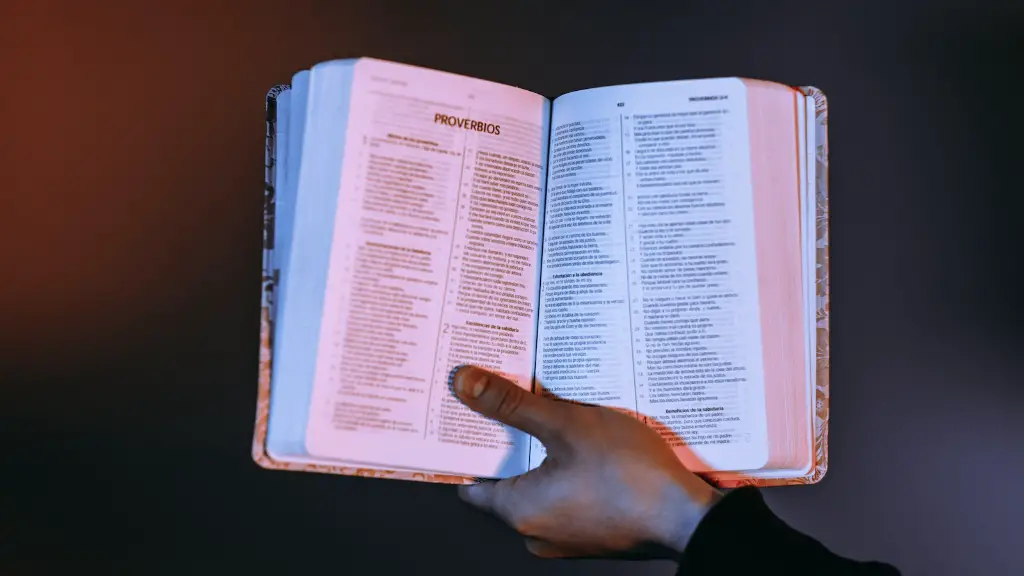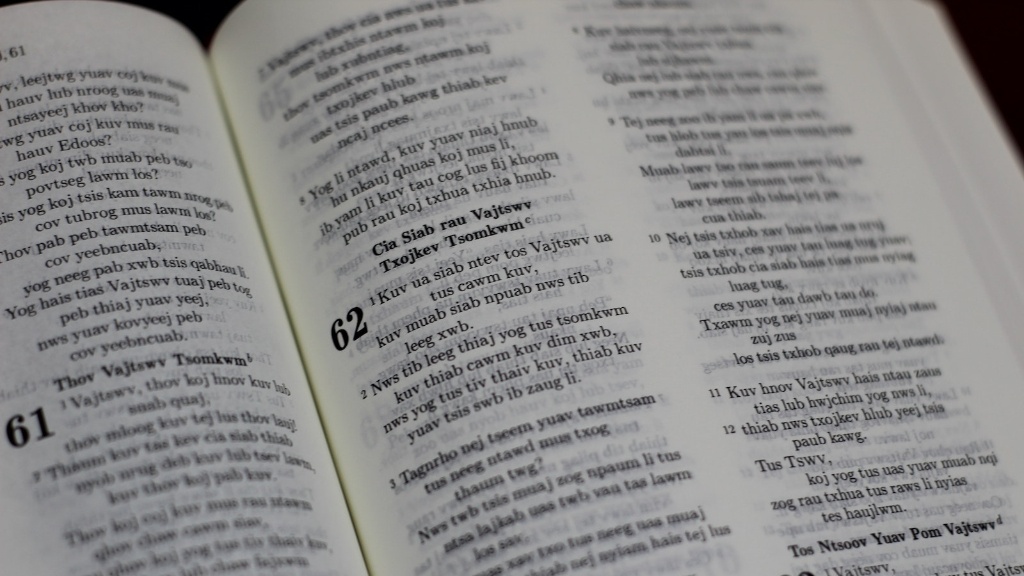When it comes to the hot topic of lesbians and the Bible, there is a lot of confusion and debate. Some interpretations swear that the Bible condemns lesbian relationships, while others proclaim it is silent or even encouraging. To find out the truth, we need to look at what the Bible actually says about lesbians, and what it means for those living in or exploring same-sex relationships.
The Bible does not explicitly mention lesbian relationships. Although there is a story in the Bible about Sodom and Gomorrah, which people often use to condemn lesbian relationships, the text actually addresses the sin of inhospitality. The Bible does refer to other forms of same-sex relations, but these are generally condemnations of rape, orgies and cult prostitution. As such, these passages do not provide a basis to condemn consensual same-sex relationships.
In fact, the Bible never actually mentions anyone engaging in a same-sex relationship. The closest reference it makes is to people who identify as eunuchs, who are often seen as identifying outside gender boundaries. Some biblical scholars interpret this to mean that they were engaging in non-conventional sexual relationships as an alternative to heterosexual relationships.
The Bible does, however, have very clear teachings about love, compassion and justice. Similarly, it also rejects any kind of discrimination, particularly against women. This means that people of all sexualities should be treated with kindness and respect. These teachings are applicable to everyone in today’s world, including lesbians.
Beyond the Bible’s teachings on love and respect, many biblical scholars have argued that it does not specifically discourage same-sex relationships. In fact, some interpretations have gone even further and argued that the Bible may even be teaching acceptance of same-sex relationships. For example, in Romans 1:24-27, Paul discusses how some acts against nature happened and then later condemns them. However, some interpretations suggest that this may be referring more to same-sex activities that are associated with idolatry, exploitation and idolatrous temple prostitution rather than loving relationships between two women.
Reception in the Church
The way in which the Bible is interpreted and applied to everyday life varies greatly throughout different Christian denominations. Some denominations have rejected the rigid interpretations of the Bible and instead have allowed same-sex marriages and ordinations of gay and lesbian clergy. Other denominations accept homosexuality but do not allow same-sex marriages, while others still condemn homosexuality entirely.
Overall, the debate about the biblical view of lesbianism is complex. There is a great deal of ambiguity about what the scriptures mean and what the intentions of authors were when they wrote them. Ultimately, if a person is looking for a biblical perspective on lesbian relationships, they should consider the teachings of love and acceptance that are found elsewhere in the Bible. Additionally, they should also look to their own church or denomination for guidance as to how they interpret the Bible.
Impact on Legislation
While the Bible is an important source of moral guidance, what is more important is how this guidance is practically translated into laws and regulations. In many countries, laws that are discriminatory towards lesbians are still in effect, such as those banning same-sex marriage, adoption and even criminalizing homosexuality. Despite the lack of clear biblical direction on the topic, some opponents of same-sex relationships argue that such laws and regulations are core to the Bible’s teachings.
The truth is that the Bible does not provide a clear-cut answer as to what it says about lesbian relationships. Ultimately, the only thing that can be said with certainty is that the Bible does not explicitly condone nor condemn such relationships. The interpretation of the scriptures is left up to individuals and their churches or denominations, and it is also important to consider the practical implications of any laws or regulations resulting from the biblical perspective.
Experts’s Perspective on Lesbian Relationships
Experts are divided in their opinions about lesbians and the Bible. Many argue that, because of the lack of explicit guidance, it is not possible to definitively say what the Bible says about female homosexuality. Some argue that the Bible is silent on the matter and that, ultimately, individuals should be guided by their own faith and what they believe is right. Others, however, argue that, while the Bible does not explicitly condemn lesbian relationships, it does still set a precedent of traditional marriage being between a man and a woman, and that same-sex relationships are still seen as “unnatural”.
The bottom line is that each person’s interpretation of the Bible will differ. It is important to remember, however, that the Bible does teach love, compassion and justice. Therefore, regardless of how one interprets the Bible in regard to lesbian relationships, it is important that those in same-sex relationships be treated with respect and dignity.
Recent Developments
Recent years have seen a shift in attitudes and a greater acceptance of same-sex relationships, both in society and in many churches. This has been largely driven by changing demographics and generations that are more open to different views on what constitutes a family. This has resulted in some churches becoming more accepting of same-sex relationships, including the Catholic Church and some Protestant denominations.
Additionally, many countries around the world have extended legal protections to same-sex couples, including the legalization of same-sex marriage in many places. This has been seen as a move towards greater acceptance and understanding of lesbian relationships.
Overall, it is clear that the debate about lesbians and the Bible is far from resolved. Nevertheless, it is important to remember that the Bible does teach love, compassion and justice, and that these principles should guide our understanding of any same-sex relationships.
Conclusion
The Bible is an important source of guidance and moral teachings, but the interpretation of the scriptures regarding lesbian relationships is complex. Ultimately, each individual will approach the Bible differently and draw different conclusions. It is important to remember, however, that the Bible does teach love, compassion and justice, and that this should be extended to those in same-sex relationships.



